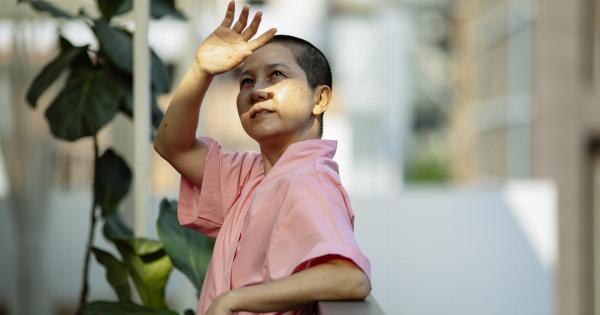Many women go through various stages of breast growth during their lifetime. It is a natural and normal process that occurs due to hormonal changes in the body. However, there are often several questions surrounding this topic.
In this article, we will address some common questions and provide you with a better understanding of breast growth.
What is Breast Growth?
Breast growth refers to the development and enlargement of the breasts. It is a characteristic feature of female mammals, including humans, and is primarily driven by the hormone estrogen.
During puberty, the levels of estrogen increase, triggering the development of the breasts.
What Causes Breast Growth?
The main hormone responsible for breast growth is estrogen. Estrogen is produced by the ovaries and plays a crucial role in the development of secondary sexual characteristics, including breast tissue.
Other hormones, such as progesterone and prolactin, also contribute to breast growth.
When Does Breast Growth Start?
Breast growth typically starts during puberty, which usually begins between the ages of 8 and 13 in girls. The exact timing varies from person to person.
The initial signs of breast growth include the swelling of breast tissue and the formation of small, firm lumps beneath the nipple. This is often referred to as the “breast bud” stage.
How Long Does Breast Growth Last?
The duration of breast growth varies from person to person. In general, breast development continues for about two to four years after it first begins.
Most girls reach their adult breast size by the age of 17 or 18, although some may experience further growth into their early twenties.
Does Breast Size Affect Breast Growth?
No, breast size does not affect breast growth. Breast size is determined by a combination of factors, including genetics, hormonal levels, body weight, and overall health.
It is important to remember that breast size does not determine a person’s femininity or attractiveness.
Are There Factors that Can Affect Breast Growth?
While breast growth is primarily determined by hormonal factors, there are certain factors that can potentially influence it. These include genetics, nutritional factors, overall health, and certain medical conditions.
For example, malnutrition or hormonal imbalances can hinder proper breast development.
Can You Stimulate Breast Growth?
It is not possible to stimulate breast growth in the sense of making them grow larger than what is determined by your genetic potential. However, you can take steps to support healthy breast development.
This includes maintaining a balanced diet, regular exercise, and good overall health.
Does Birth Control Affect Breast Growth?
Birth control methods that contain hormones, such as the combination pill or certain types of hormonal IUDs, may have a slight impact on breast growth. These methods contain synthetic hormones that can affect the hormonal balance in your body.
However, any changes in breast size or development are usually temporary and resolve over time.
Can Weight Gain or Loss Affect Breast Size?
Weight gain or loss can potentially affect breast size. Breasts consist of mostly fatty tissue, so changes in overall body weight can lead to changes in breast size. However, the impact varies from person to person.
Some individuals may notice changes in breast size more significantly than others.
Is Breast Growth a Sign of Pregnancy?
Breast growth can be a common early sign of pregnancy. During pregnancy, hormonal changes take place to prepare the body for breastfeeding. These hormonal changes can result in increased breast size and tenderness.
However, breast growth alone is not a definitive indicator of pregnancy, and it is always recommended to confirm pregnancy with a medical test.
In Conclusion
Understanding breast growth is essential for women of all ages. It is a natural process that occurs as a result of hormonal changes in the body, primarily driven by estrogen.
Factors such as genetics, overall health, and hormonal imbalances can potentially influence breast growth. While it is not possible to control the size of breasts beyond genetic potential, maintaining a healthy lifestyle can support proper breast development.



























